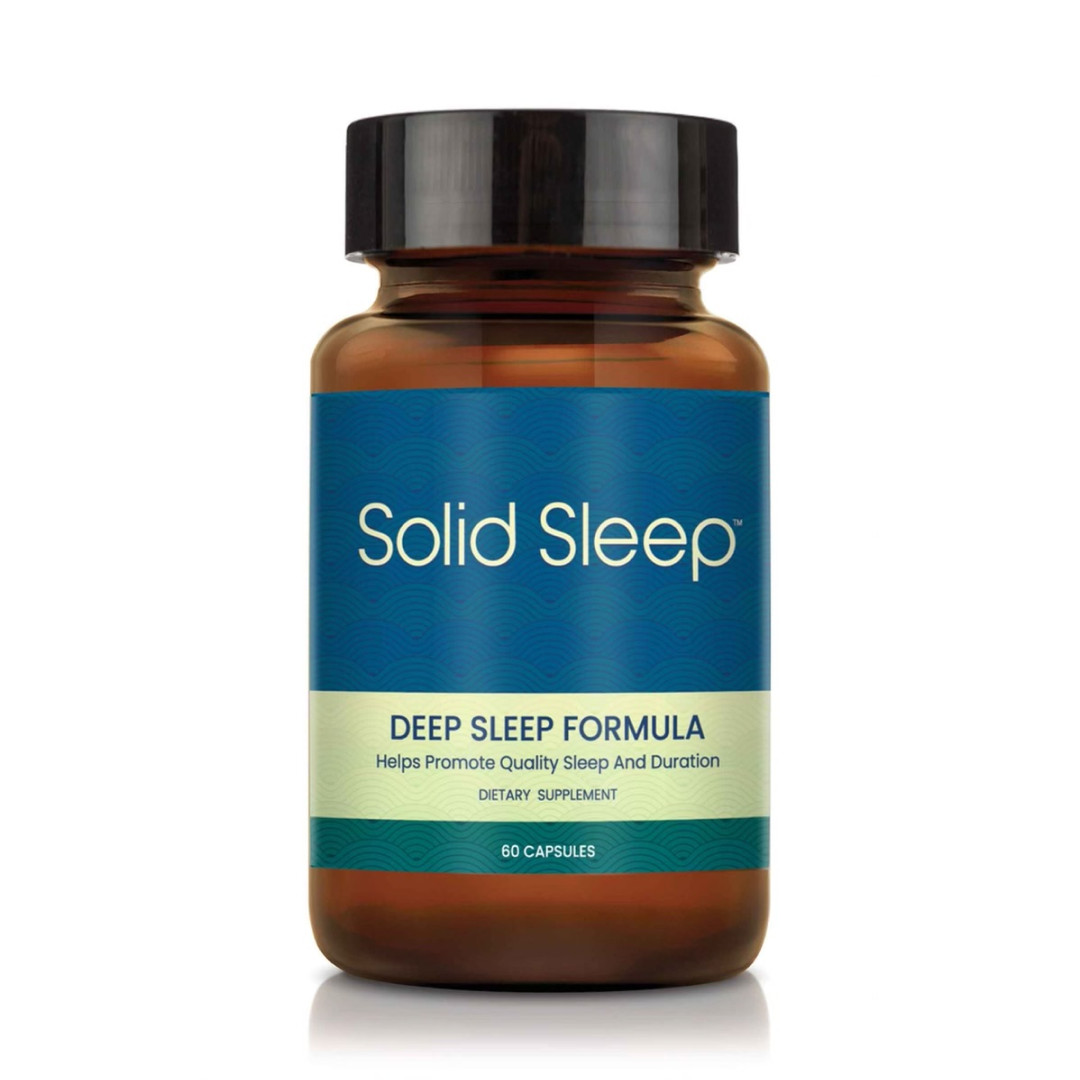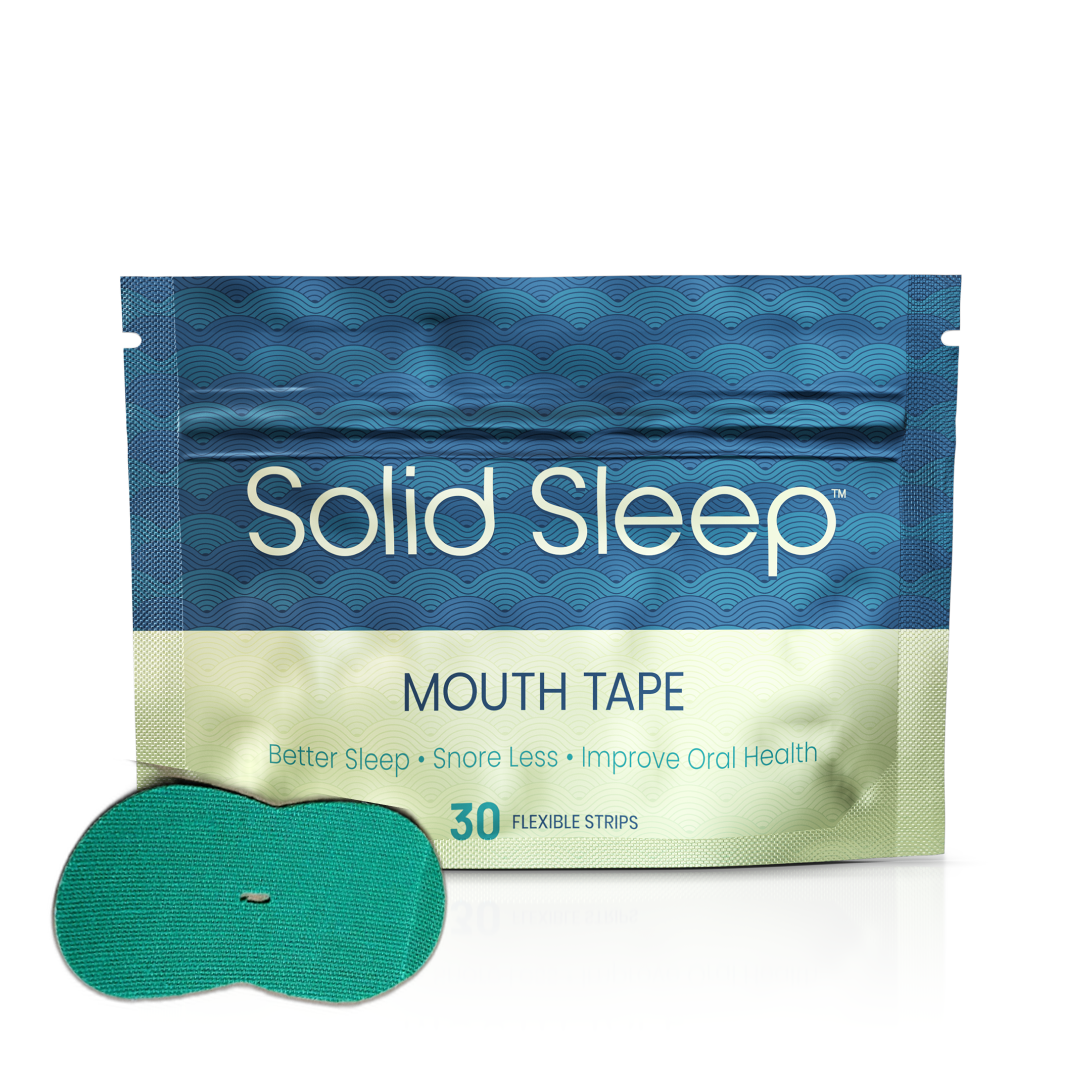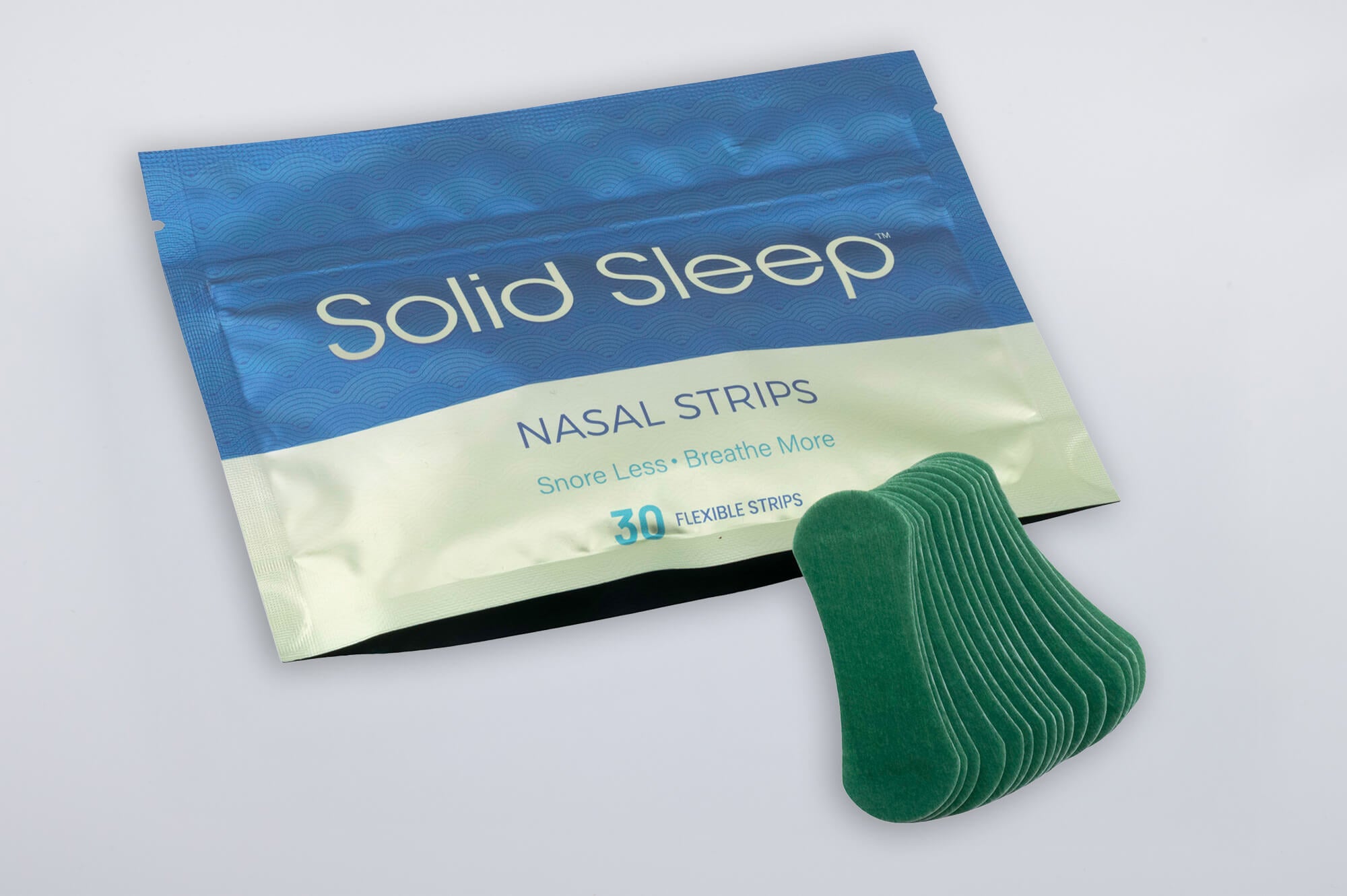Key Highlights
Promotes Nasal Breathing: Solid Sleep mouth tape gently keeps your lips closed, encouraging your body’s natural and more efficient way of breathing.
Improves Sleep Quality: By facilitating nasal breathing, the mouth tape helps you achieve a deeper, more restorative sleep cycle for solid sleep.
Reduces Snoring: It minimizes mouth breathing, which is a common cause of snoring, leading to quieter nights and uninterrupted rest.
Boosts Oxygen Intake: Breathing through your nose allows for better oxygen intake, which is vital for your body's overnight recovery processes.
Skin-Friendly Design: Made with gentle, non-irritating materials, ensuring comfort throughout the night without leaving residue.
Introduction
Are you tired of waking up with a dry mouth, feeling groggy, or disrupting your partner with snoring? These common issues often stem from mouth breathing during sleep, which can negatively impact your sleep quality and overall health. A simple yet powerful solution is gaining recognition: mouth taping. Using a specially designed mouth tape like the one from Solid Sleep can help you transition to nasal breathing, unlocking the door to the deep, solid sleep your body needs to rest and recover.
Understanding Solid Sleep Mouth Tape
So, what exactly is Solid Sleep mouth tape? It is a specially designed adhesive strip made to be worn over your lips while you sleep. Its purpose is to gently hold your mouth closed, encouraging you to breathe through your nose, which is the body's intended and more effective breathing method.
The practice of mouth taping works by retraining your body to rely on nasal breathing overnight. This simple switch can dramatically improve your sleep quality. By preventing mouth breathing, Solid Sleep mouth tape helps you achieve better sleep, allowing for a more profound and uninterrupted rest. Now, let’s look at what makes this specific tape stand out and how it transforms your nightly routine.
What Makes Solid Sleep Mouth Tape Unique?
When choosing a product you'll use every night, quality is everything. SolidSleep mouth tape distinguishes itself by using superior, quality materials that are both effective and safe. The brand champions rigorous quality control, ensuring every strip is non-irritating and skin-friendly. This focus on gentle materials makes it comfortable for nightly use.
Furthermore, Solid Sleep was founded by healthcare professionals, Dr. Alex Kalmanovich, DDS, and Dr. Polina Kalmanovich, PharmD, who developed the products based on scientific evidence. This professional backing ensures the tape is designed for optimal function and safety, unlike generic tapes that may cause irritation. The use of high-grade, organic ingredients where possible sets a high standard in the market.
Many users consider it the best mouth tape available. As one dentist, Zach, noted, "it is the most comfortable and secure mouth tape I’ve tried yet and I will recommend to my patients as well! Also, doesn’t pull beard hair or leave residue, great product!" This combination of expert design, premium materials, and positive user feedback makes it a trusted choice.
How Does Mouth Taping Improve Sleep Quality?
The science behind mouth taping is rooted in the significant benefits of nasal breathing. When you breathe through your nose, the air is warmed, humidified, and filtered, which protects your airways. More importantly, nasal breathing increases your body's oxygen intake and activates the parasympathetic nervous system, which helps you relax.
By promoting this state of calm, mouth taping helps you fall asleep faster and enter deeper stages of sleep. A stable sleep cycle is crucial for physical and mental restoration. Consistent nasal breathing throughout the night prevents the disruptions often caused by mouth breathing, such as snoring and dry mouth.
Ultimately, this simple adjustment leads to a profound improvement in sleep quality. You wake up feeling more refreshed and energized because your body has received the oxygen and uninterrupted rest it needs. It's a straightforward path to better sleep, powered by your body's own natural processes.
Key Benefits of Using Solid Sleep Mouth Tape
Using Solid Sleep mouth tape offers a wide range of benefits that extend beyond just a quiet night. The primary advantage is its ability to promote nasal breathing, which is the foundation for achieving deep, uninterrupted rest. By keeping your mouth closed, you can finally say goodbye to waking up with a sore throat or a bothersome dry mouth.
This shift in breathing patterns leads to a more restful sleep experience overall. With reduced snoring and better oxygenation, your body can fully engage in its restorative processes. The following sections will explore how this simple tool enhances specific aspects of your health, from reducing snoring to boosting your energy levels.
Enhancing Nasal Breathing and Reducing Snoring
Snoring is often a direct result of mouth breathing. When you breathe through your mouth, the airflow can cause the soft tissues at the back of your throat to vibrate, creating the sound we know as snoring. For many, this is a major obstacle to achieving solid sleep for both themselves and their partners.
Solid Sleep mouth tape directly addresses this issue. By ensuring your mouth remains closed, it encourages healthy nasal breathing, which creates a more stable and open airway. This prevents the vibrations that cause snoring, leading to quieter and more peaceful nights. Promoting constant nasal breathing is one of the most effective ways to reduce snoring naturally.
Beyond just quieting the noise, this also improves your oral health. A common side effect of mouth breathing is dry mouth, which can lead to bad breath and an increased risk of cavities. By using mouth tape, you can:
Significantly reduce or eliminate snoring.
Prevent the discomfort and health risks of dry mouth.
Support better oxygen intake for a more restorative sleep.
Promoting Deeper, More Restorative Sleep
Achieving deep, restorative sleep is about quality, not just quantity. Nasal breathing, facilitated by mouth tape, plays a crucial role here. It helps calm your nervous system, allowing your body to more easily enter and sustain the deep sleep stages where true restoration happens. This is the phase where your body repairs tissues, builds bone and muscle, and strengthens the immune system.
One of the most noticeable results of better sleep is a significant boost in your daytime energy levels. When you get the restorative sleep you need, you wake up feeling refreshed and ready to take on the day. This translates to improved cognitive function, better mood regulation, and enhanced physical performance in your daily activities and workouts.
With Solid Sleep, you are not just stopping a bad habit; you are actively improving your body's ability to recover each night. This leads to long-term benefits for your mental and physical well-being, proving that a simple change in how you breathe can transform how you live.
Conclusion
In conclusion, using Solid Sleep Mouth Tape can be a game-changer for improving your sleep quality. By enhancing nasal breathing and minimizing snoring, this innovative solution promotes deeper and more restorative sleep, ensuring you wake up refreshed and ready to take on the day. It's essential to prioritize your sleep health, as it significantly impacts your overall well-being. If you're curious about how mouth taping can benefit you, visit Solid Sleep Now to explore our products and discover the difference it can make in your nightly routine. Don’t hesitate to take that first step toward better sleep!
Frequently Asked Questions
Is Solid Sleep Mouth Tape safe for nightly use?
Yes, it is designed for safe daily use. The mouth tape is made from skin-friendly, non-irritating materials and was developed by medical experts. The daily use of SolidSleep mouth tape is a safe and effective way to encourage nasal breathing, which positively impacts your overall health by improving sleep.
How do you properly apply Solid Sleep Mouth Tape?
The application is simple. First, ensure the skin around your lips is clean and dry. Fold your lips inward gently and place one strip of SolidSleep mouth tape horizontally over the center of your mouth. For even better airflow, consider using it with Nasal Strips.
Who should avoid using mouth tape for sleep?
While mouth tape is beneficial for many, you should avoid it if you have nasal congestion, difficulty with nasal breathing, or are under the influence of alcohol. Individuals with diagnosed obstructive sleep apnea should consult their doctor before starting mouth taping to ensure it's a safe option for them.






















